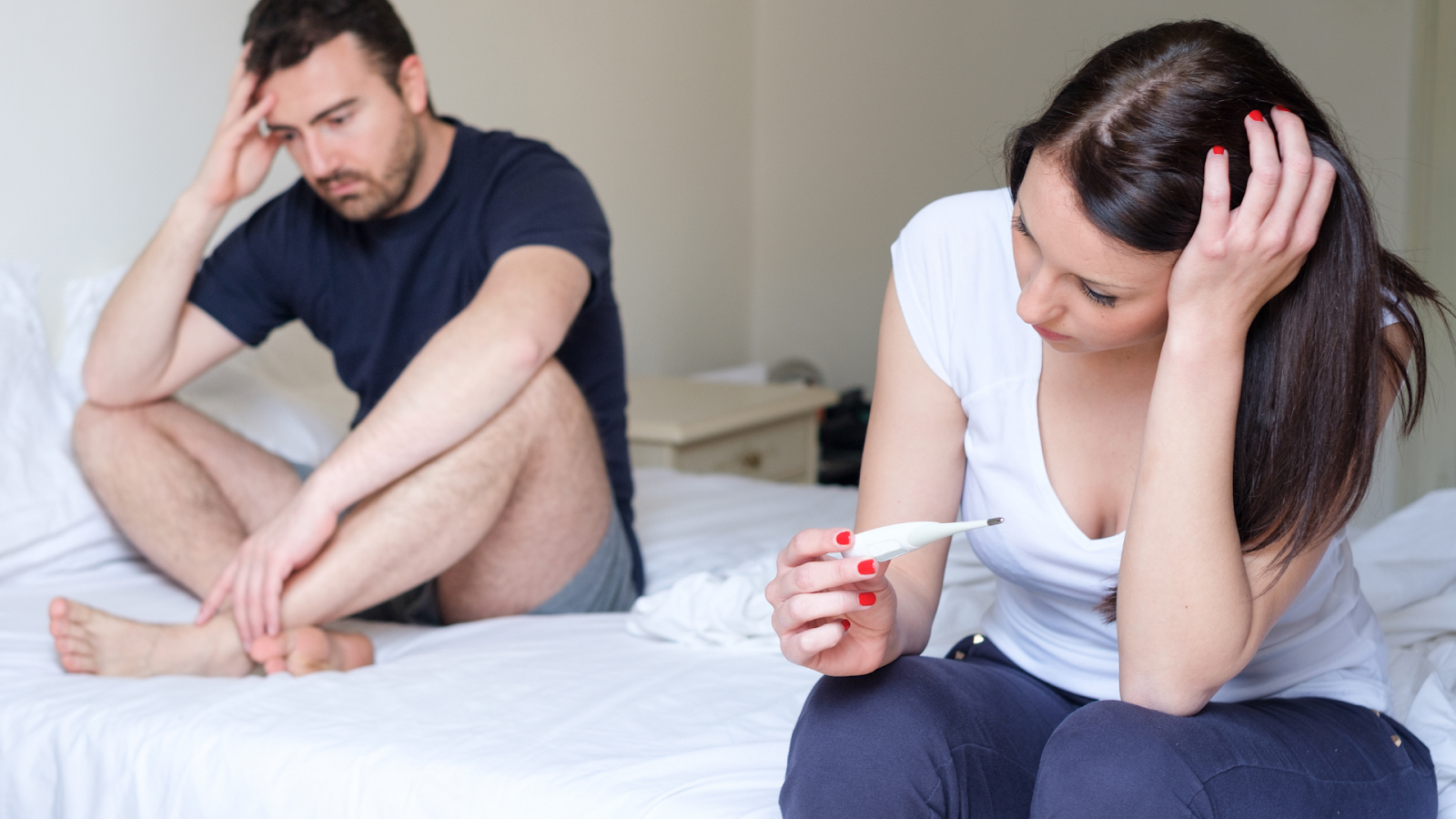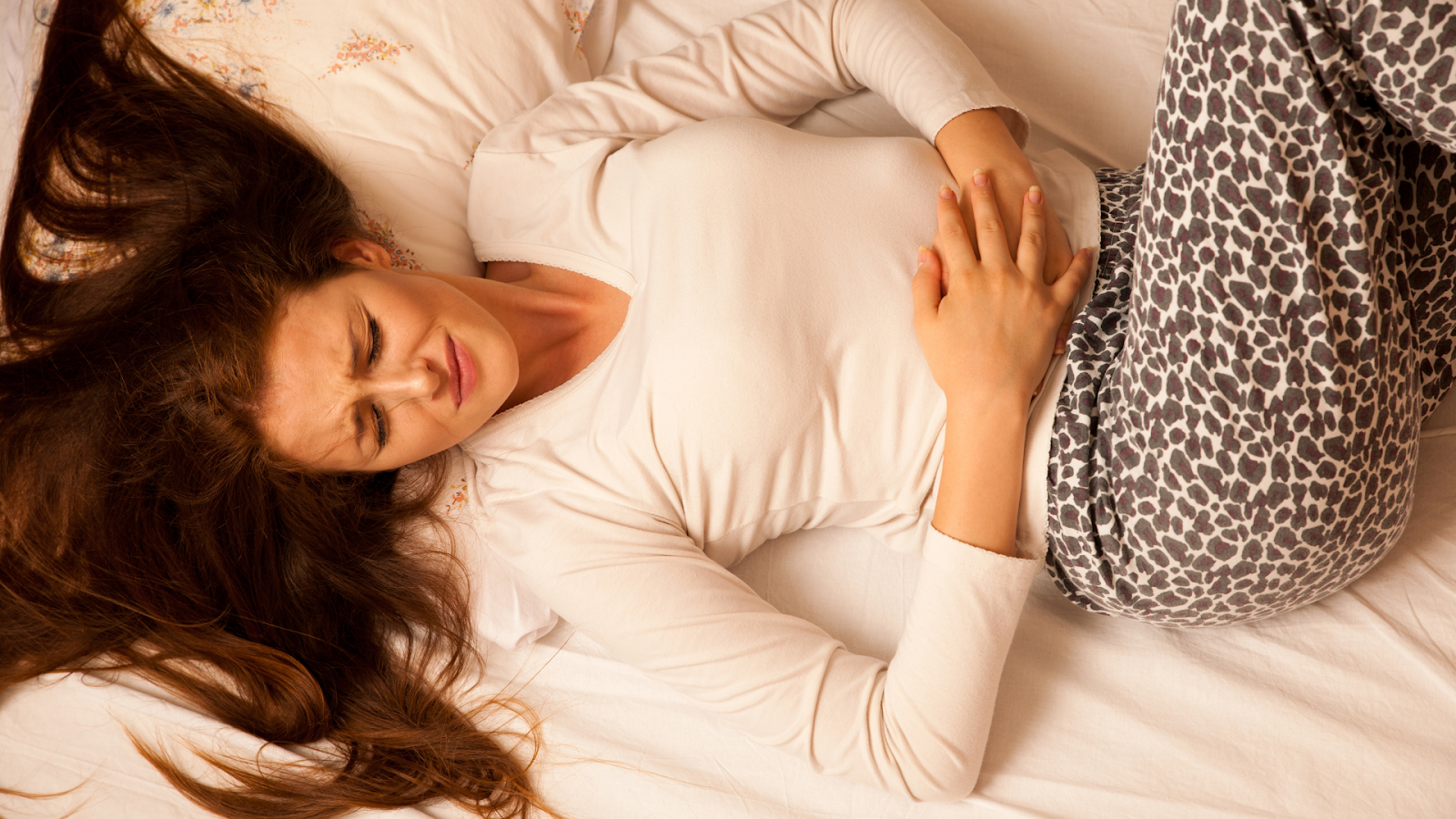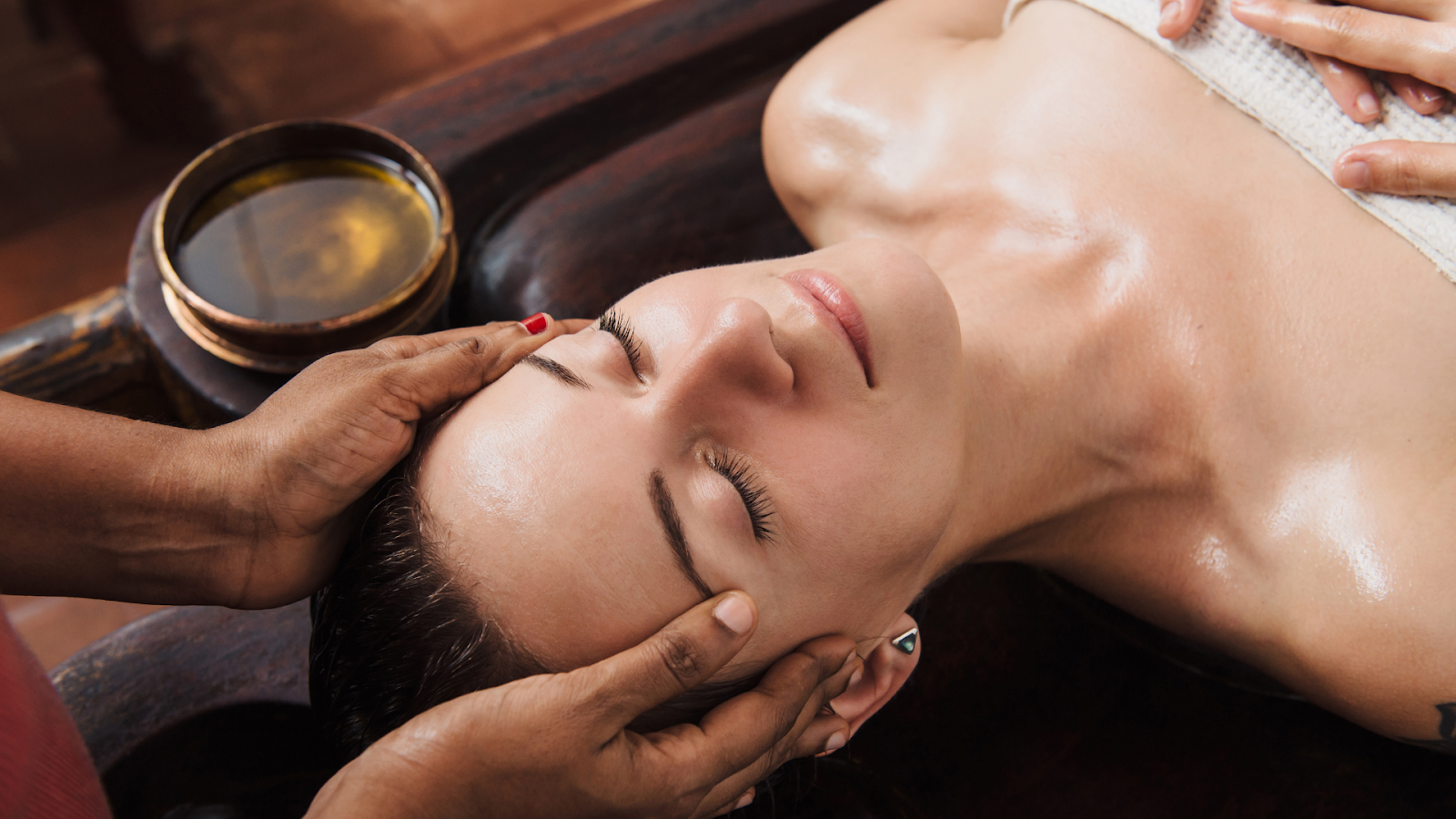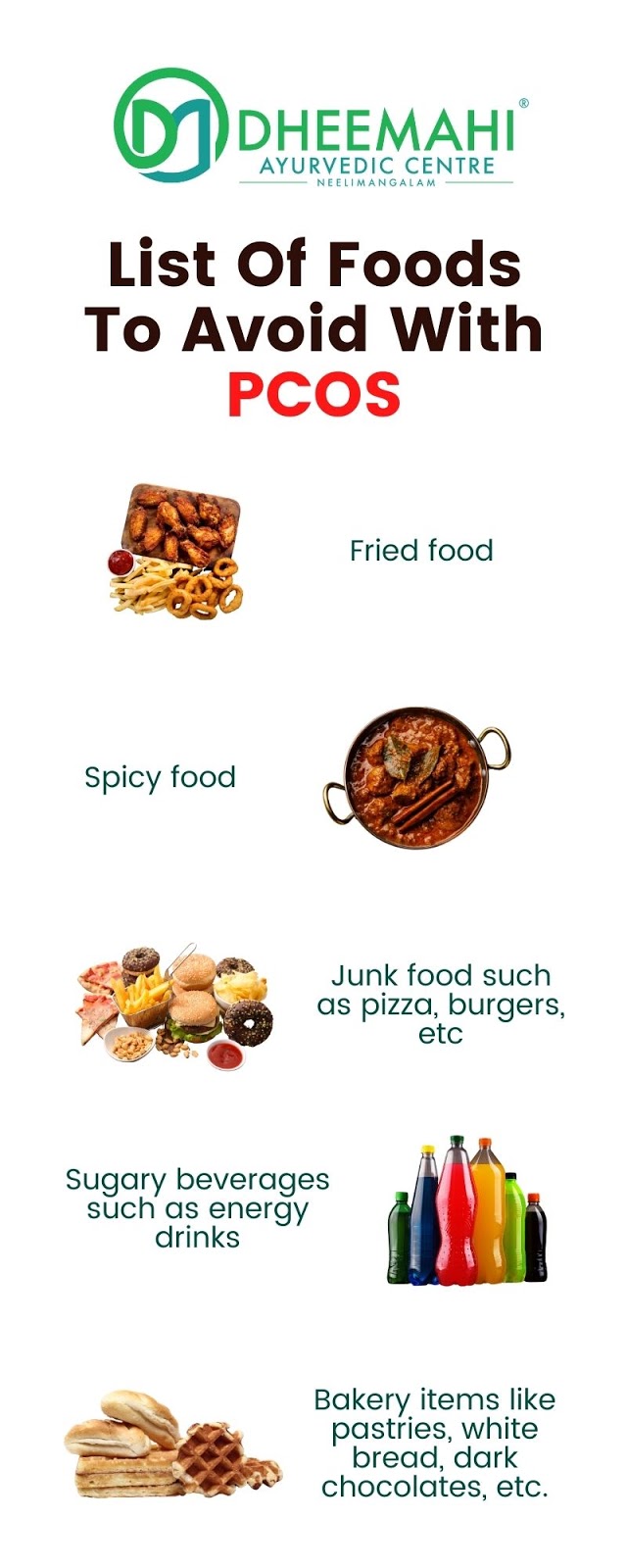Ayurvedic Treatment for Polycystic Ovarian Syndrome
— Dr. Karthu Satheesh B.A.M.S
Polycystic ovarian syndrome (PCOS) is quite familiar with gynaecological disease among people in both developed and developing countries due to its prevalence. It is the most common lifestyle disorder that affects women during their reproductive age. It can be a leading cause of various metabolic diseases further.
PCOS is an endocrine disorder (disease due to hormonal imbalance) in which there is excessive production of androgen (androgens are usually thought of as male hormone, but the female body also produces a small amount of androgen naturally by the ovaries). It is the condition in which multiple cysts( fluid-filled sacs) are formed in the ovaries. That’s why it is called polycystic and it prevents the ovaries from their normal functioning. It leads to various clinical manifestations such as menstrual irregularities, obesity, infertility, etc.

Ayurvedic treatment for PCOS
In ayurvedic classics, most of the gynecological disorders have been described under the heading of yonivyapath that is, a disease affecting the genital organs of the female. Here, we can correlate PCOS with an ayurvedic term kashtarthava ( when the menstrual blood comes out of the body with difficulty that condition is known as kashtarthava as the name indicated).
It has been considered as a symptom of various gynecological diseases, not as a separate disease entity.
Aetiological factors
The menstrual cycle is a characteristic feature of a woman. It is a physiological process that occurs every month regularly during the reproductive phase of a woman’s life. Yet at certain times it gets disturbed due to certain factors. Its exact cause should be uncertain till now. But we can consider our sedentary lifestyle, unhealthy food habits, lack of physical exercise and meditation, stress, etc are the common causes of PCOS.
Pathophysiology
- The excessive increase of Vata dosha especially Apana Vayu( situated below the umbilicus) and Kapha dosha.
- These excessive doshas( functional units of the body) in turn cause depletion of rasa dhatu (blood devoid of erythropoietic elements) and rakta dhatu (erythropoietic elements). Rasa and raktadhatus are directly responsible for the production of menstrual blood.
- As a result, menstruation doesn’t happen at an improper time of appearance of menstruation or happens with less quantity, or with painful.
It manifests symptoms such as
- Menstrual irregularities like oligomenorrhea (less menstrual flow), amenorrhea (absence of menstruation), dysmenorrhea ( painful menstruation), dysfunctional uterine bleeding(abnormal uterine bleeding)
- Increasing obesity
- Abnormal hair growth in body and face( hirsutism)
- Thickened and greyish brown pigmented skin commonly seen around the neck, inner thigh region, groin area, and armpit (Acanthosis nigricans)
- Acne
If it is untreated, the possible late sequelae of PCOS can be
- Developing diabetes mellitus due to insulin resistance especially in obese women
- Risk of developing endometrial carcinoma( endometrium is the innermost lining of the uterus)
- The risk of hypertension (increased blood pressure), dyslipidemia( high level of cholesterol), and ultimately leads to cardiovascular disease which is the most common metabolic abnormality in women with PCOS.
- Obstructive sleep apnea (loss of sleep)
- Female infertility is the most common complication due to PCOS.
Management of this condition includes both Samana (pacifying treatment) and sadhana therapies (purificatory treatment). As per the physical and mental condition of the patient, stage of the disease, doshik assessment the physician should decide on internal medication for pacifying the doshik predominance and the disease symptomatically.

Panchakarma treatment for PCOS
Regular practice of purificatory procedures is necessary. Purification of menstrual blood and normal functioning of deranged doshas(basic elements) are the primary concern in the purificatory treatment procedures. For this, panchakarma is implemented after snehana (oleation therapy) and swedana (sudation therapy) purva karma.
As obesity is one of the symptoms of PCOS, there is a considerable amount of vitiation of Kapha dosha and medo dhatu (adipose tissue that is, excessive fat) both adhere to each other. Here,rukshana therapy has importance as it is a lifestyle disorder. For this can use medicated decoction, medicated powder, buttermilk, etc internally by the advice of a physician.
Udwarthanam ( powder massage)
Is an option for this rukshana therapy externally. External application of medicated powder in the direction opposite to that of hair follicles with considerable pressure. It pacifies the accumulated Kapha dosha and medo dosha( excessive fat). As a result, it cleanses the body channels, increases blood circulation by dilatation of blood vessels, and increases the brightness of the skin.
Sneha Karma( oleation therapy)
Snigdha (unctuousness)is one of the most essential constituents of the body.it can be done both internally and externally. Internal administration of Sneha( oily substance) known as snehapana in which medicated ghee or oil administered through oral route in required quantities for a specific period of time. If the person is unable to take these oil substances directly, then it can administer along with food such as gruel, etc according to the requirements of an individual such as age, physical and mental strength, and habits. By this procedure, the body attains proper oleation and the vitiated doshas are in their excited state.
Swedana Karma ( sudation therapy)
Followed by oleation therapy. The induction of sweating by steambath will liquefy the accumulated dosha and move it towards the digestive tract or the nearest route through which is being evacuated. By this procedure, perspiration increases, nourishes the tissues, cleanses the body channels, improves circulation, etc.
Panchakarma includes Vamana, virechana, kashaya vasthi, anuvasana vasthi, and nasya. All these procedures are applicable in the condition of PCOS.
Vamana (emetic therapy)
One of the main purificatory procedures preceded by oleation and sudation therapy. Expulsion of aggravated doshas especially Kapha dosha from the body through the mouth while taking medicine through oral route. After the expulsion of the vitiated dosha, it stops automatically. It gives lightness of the body, calmness in mind, increased perception of sense organs, etc.
Virechana ( purgation therapy)
Aggravated doshas expelled out through anus by the administration of medicine through oral route. Proper functioning of Vata dosha, purification of rasa, and rakta dhatu, and through which maintenance of equilibrium of the body are some special features of purgation therapy.
Kashaya vasthi ( decoction enema)
Medicated decoction introduced through the anus using an enema can. It removes Kapha and pitta dosha which are seated in the location of Vata dosha. It has an action on the hypothalamic-pituitary axis, ovarian axis, and thus regulates the hormone level.
Anuvasana vasthi (oil enema)
Administration of oil through the anal route which is done if it is necessary, in case of any rakshasa (dryness) attained by the administration of decoction enema. It enhances the proper functioning of Vata.
Utharavasthi ( vaginal douche)
Administering enema drugs either oil, ghee, or medicated decoction through the vaginal or urethral route directly. Moreover, this procedure is superior in qualities. It stimulates the hypothalamic-pituitary and ovarian axis immediately and regulates the hormonal function also.
Nasya ( nasal instillation)
Medications administered through the nasal openings which are mainly indicated in the diseases of the head. But it can be done in many other conditions which affect body parts other than the head also. Highly beneficial in gynec and infertility cases. It eradicates mental stress and gives a smoothening effect on the whole body.

Foods to avoid with PCOS
As it is a lifestyle disorder, food has the main role in developing PCOS in many young ladies. The food should be avoided with PCOS include
- Fried food
- Spicy food
- Junk food such as pizza, burgers, etc
- Sugary beverages such as energy drinks
- Carbohydrate-rich food
- Bakery items like pastries, white bread, dark chocolates, etc.
Ayurvedic remedies for PCOS
Ayurveda is a holistic science that has importance in maintaining one’s health by administering proper ahara(food), vyayama(exercise), and Nidra(sleep) and not by medicines only.
Here, one should follow a proper diet such as a low glycemic index diet that is don’t cause insulin into an uncontrolled level such as whole grains, legumes, lentils, dark leafy greens, high fiber content food, red-colored fruits like grapes, pomegranate, low-fat dairy products, etc.
Proper physical exercise according to the strength of an individual. It gives lightness to the body. Pranayama and meditation are also advisable to reduce mental stress and instability. It smoothens the mind and sense organs.
Adequate sleep is necessary as it plays a key role in the maintenance of basic constituents of the body.
Apart from these necessary things, the person who can follow local self-care practices such as yoni prakshalana( washing of vaginal area) by water boiled with nalpamaradi powder or Triphala powder once or twice daily in order to prevent any kind of infectious disease and also helpful to maintaining the hygiene of private parts.
PCOS Ayurvedic treatment in Kerala
Kerala, God’s own country makes a great role in Ayurvedic practices with its purity as followed by tradition. Due to the weather and landscape, the treatments will be more effective in Kerala than in any other country. Most of the ayurvedic hospitals offer a wide range of treatment modalities for PCOS with the help of trained physicians and therapists.
Dheemahi ayurvedic center for PCOS treatment
Dheemahi ayurvedic center has a historic background in the field of athuru sevana( treating patients) treating with holistic ayurvedic measures. Here, all the treatment modalities are done under the supervision of specialized doctors and experienced therapists. A wide range of diseases including gynec ailments like PCOS is managed by the doctors present here by providing accurate treatment of its best quality.
Reducing stress through self-care practices such as getting enough sleep, making time to relax by doing pranayama and meditation, intake of adequate healthy food substances, and proper exercise can also help a person to manage PCOS to an extent.

Get your online medical consultation with an expert doctor before booking.
The unique approach involves a series of discussion during your initial decision-making process to make sure that we will be able to match your expectations with our treatment. Based on the discussions with you our team of expert doctors will design the best treatment package personalized for your needs.
How our booking process works
1
Medical Questionnaire
Fill our Medical Questionnaire, after that we will get back to you via email/phone.
Discussion with Doctor
Discuss your health condition and expectations with our doctor.
3
Important Information
Carefully read all the important information.
4
Reservation
Confirm the booking by making a payment of 50% advance.
Dheemahi Ayurveda centre is recognized by Government of Kerala
The medicines we use comes from our own GMP certified herbal pharmacy.
One of the best ayurvedic hospital in kerala for classical panchakarma treatment
Daily yoga sessions of an expert yoga guru
All our attendants and therapists are certified as well as given in-house training by our Doctors to learn our way of therapies
In-house kitchen team serves the best authentic, healthy and fresh ayurvedic food
We offer you the best ayurvedic wellness centre experience
In house training sessions led by doctors on ayurveda lifestyle
Ready to Make a
Dheemahi Ayurvedic Village, Kumarakom, Kottayam, Kerala, India, Pin 6860000
Dheemahi Ayurvedic Centre, Near Neelimangalam Bridge, Kumaranaloor, Perumbaikad.P.O, Kottayam, Kerala, India, Pin 686016
Call Us Anytime: +91 80 4717 2727
Best Ayurvedic Diabetes Treatment in Kerala
Best Ayurvedic Obesity Treatment In Kerala
Best Ayurvedic Infertility Treatment in Kerala
Best PCOD Ayurvedic Treatment in Kerala
Best Ayurvedic Psoriasis Treatment in Kerala
Best Ayurvedic Insomnia Treatment in Kerala
Ayurvedic Pregnancy Care Treatment in Kerala
Bestes Ayurveda-Zentrum in Kerala (auf Deutsch 🇩🇪)


